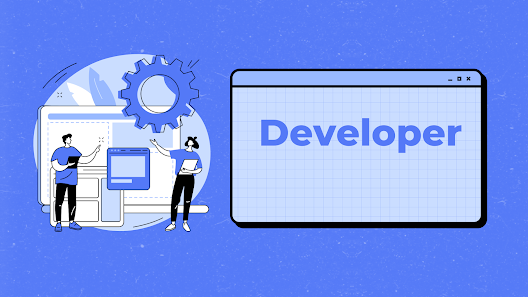Looking to dive into the world of coding?
Becoming a developer isn’t just about crunching numbers or writing lines of code.
It’s about crafting solutions, solving problems, and creating new possibilities.
Let’s explore how you can transform your passion for tech into a flourishing career as a developer.
Understanding the Developer Role
What does a developer do? In its simplest form, a developer writes code that helps computers perform specific tasks. But the scope of their role is much more expansive.
Developers can work on web applications, mobile apps, software, and even internet-connected gadgets.
They are architects of the digital space, constructing with lines of code instead of bricks and mortar.
Types of Developers
The developer field is vast and diverse. Here are a few common types:
- Web Developers: Focus on websites and online applications.
- Mobile Developers: Specialize in apps for smartphones and tablets.
- Software Developers: Work on desktop applications and backend systems.
- Game Developers: Create interactive video games.
Each type requires a special set of skills and knowledge, but the core principles remain the same.
Getting Started: Choose Your Path
The first step is to decide what kind of developer you want to be.
Love beautiful designs and user interaction? Web development might be your path.
Fascinated by apps on your phone? Mobile development could be calling your name.
Find Your Language
Choosing a programming language is like picking the right tool for the job. Popular beginner-friendly languages include:
- Python: Great for general-purpose coding and easy to learn.
- JavaScript: Crucial for web development.
- Java: Used for mobile apps and enterprise-level solutions.
- C#: Often used in game development and applications on Windows.
Pick a language that aligns with your interest, and start building your foundation.
Learning Resources: Self-Education and Courses
Now that you’ve chosen a path and language, it’s time to learn. Fortunately, there are myriad resources available for budding developers.
Online Courses and Tutorials
Websites like Codecademy, Coursera, and Udemy offer courses that range from beginner to advanced.
They provide structured learning paths and hands-on exercises to solidify your understanding.
Books and Documentation
Sometimes, a good book can be your best friend. Resources like "Eloquent JavaScript" or "Python Crash Course" offer in-depth insights and exercises to enhance your learning.
Don’t overlook the official documentation of a language either; it’s a golden trove of information.
Practice Makes Perfect
The key to becoming a developer is practice.
Websites like LeetCode, HackerRank, and Project Euler present challenges that sharpen your coding skills in a practical, engaging way.
Building Your Portfolio
A solid portfolio can set you apart in the developer landscape. But what should you include?
Personal Projects
Create a few projects that demonstrate your skills. It could be as simple as a personal blog or as complex as a custom app.
Use platforms like GitHub to showcase your code and track your progress.
Open Source Contributions
Contributing to open-source projects not only boosts your portfolio but also immerses you in a community of developers. These collaborations can teach you a lot about real-world coding and teamwork.
Document and Share Your Journey
Consider starting a blog or YouTube channel documenting your learning experiences. Sharing what you know not only helps others but also reinforces your understanding.
Networking and Community Engagement
Building a network is crucial in the developer world. Connections can lead to mentorship opportunities, collaborations, and even job offers.
Attend Meetups and Conferences
Look for local tech meetups, hackathons, or conferences. These events are excellent for learning, sharing, and connecting with like-minded individuals.
Engage in Online Communities
Join forums like Stack Overflow, Reddit, or specialized Facebook groups. These platforms offer a space to ask questions, share knowledge, and receive feedback from experienced developers.
Landing Your First Job
With skills honed and portfolio ready, you’re set to enter the job market. Here’s how to make yourself stand out:
Craft an Engaging Resume
Focus on your most relevant skills and experiences. Highlight your projects, any internships, or previous tech-related jobs. Clarity and conciseness are key.
Prepare for Interviews
Expect to go through technical interviews involving coding challenges. Practice with mock interviews and familiarize yourself with common algorithms and data structures.
Don’t Fear Rejection
Rejection is part of the process. Each interview is a learning experience, providing valuable insight into the world of tech recruiting.

